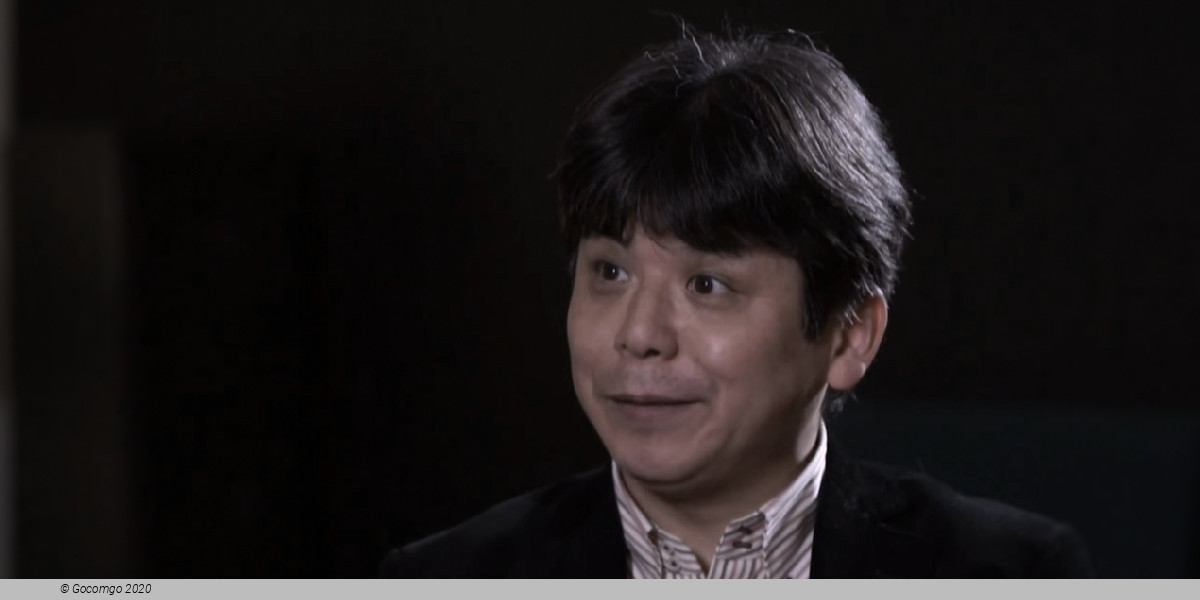Events1 results
About
Toshio Hosokawa (細川 俊夫 Hosokawa Toshio) is a Japanese composer of contemporary classical music. He studied in Germany but returned to Japan, finding a personal style inspired by classical Japanese music and culture. He has composed operas, the oratorio Voiceless Voice in Hiroshima, and instrumental music.
He was the cofounder and artistic director of a Japanese festival for contemporary music and has been a composer in residence at international festivals such as the Venice Biennale, Lucerne Festival, Warsaw Autumn and Rheingau Musik Festival. His operas premiered at the Munich Biennale and La Monnaie, among others.
Hosokawa was born in Hiroshima. He first studied piano and composition in Tokyo, then from 1976 with Yun Isang at the Berlin University of the Arts. From 1983 to 1986, he studied with Klaus Huber and Brian Ferneyhough at the Hochschule für Musik Freiburg. In 1980, he first took part in the Darmstädter Ferienkurse, including the performance of his compositions. He lectured there regularly beginning in 1990. In the following years, he became known internationally and received several commissions.
On a recommendation from Huber, he returned to Japan, where he found his personal style influenced by traditional Japanese music. In 1989, he cofounded the annual Akiyoshidai International Contemporary Music Seminar and Festival in Yamagushi and was its artistic director until 1998. From 1998 to 2007 he served as Composer-in-Residence at the Tokyo Symphony Orchestra. He was also the artistic director of the Japanese Takefu International Music Festival in Fukuj starting in 2001. In 2004, Hosokawa was appointed a guest professor at the Tokyo College of Music. He was a member of the Academy of Arts, Berlin from 2001. He was influenced by Japanese aesthetic and spiritual elements, such as calligraphy, court music and Noh theatre, giving "musical expression to the notion of a beauty that has grown from transience". He said: "We hear the individual notes and appreciate at the same time the process of how the notes are born and die: a sound landscape of continual 'becoming' that is animated in itself."
Hosokawa's first opera, the Shakespeare adaptation Vision of Lear, premiered at the Munich Biennale in 1998. It includes elements from the traditional Japanese Noh theatre. His second opera was Hanjo, which premiered at the Aix-en-Provence Festival in 2004, staged by the choreographer Anne Teresa De Keersmaeker. Co-commissioned with La Monnaie in Brussels, it was also performed in Bielefeld, Hamburg, Lisbon, Lyon, Milan and Tokyo. Hosokawa won the fifth Roche Commission with Woven Dreams for orchestra, which was first played by the Cleveland Orchestra conducted by Franz Welser-Möst at the Lucerne Festival in 2010. His third opera was Matsukaze, again inspired by Noh theatre, which was staged by Sasha Waltz at La Monnaie in Brussels in 2011, with additional performances at the Berlin State Opera and in Luxembourg and Warsaw. His works were premiered by conductors such as Kazushi Ono, Kent Nagano, Simon Rattle and Robin Ticciati. Several of them became part of contemporary repertoire.
Hosokawa did research in 2006/07 and 2008/09 at the Institute for Advanced Study (Wissenschaftskolleg) in Berlin. He was invited as composer in residence at festivals such as the Venice Biennale, both in 1995 and 2001, the Lucerne Festival in 2000, musica viva in Munich in 2001, Musica nova in Helsinki in 2003, and the Warsaw Autumn in 2005 and 2007. He served as director of the Suntory Hall International Program for Music Composition from 2012 to 2015.
Invited by Walter Fink, he was the 18th composer featured in the annual Komponistenporträt of the Rheingau Musik Festival in 2008. In a concert of chamber music played by the Arditti Quartet and Mayumi Miyata (Shō), works such as "Silent Flowers" and "Blossoming" were presented, in which the composer tried to give nature a voice (der Natur ... eine Stimme zu geben). and his oratorio Voiceless Voice in Hiroshima was performed at Eberbach Abbey by the WDR Symphony Orchestra Cologne and the WDR Rundfunkchor Köln, conducted by Rupert Huber, with soloist Gerhild Romberger. The oratorio was conceived in 1989 as a requiem for the victims of the nuclear bomb of 6 August 1945, but was expanded to a suite in five movements in 2001 in response to ecological problems due to economic growth. Among the texts is a poem "Heimkehr" (Returning home) by Paul Celan, and a haiku by Matsuo Bashō. The music uses wind sounds, tone clusters, and percussion close to natural sounds, while the choral writing seems to align with European models. In 2010, he composed a chamber music work for his friend Walter Fink, Für Walter (For Walter), for soprano saxophone and piano, with percussion ad libitum, and attended its premiere in a concert on Fink's 80th birthday.



